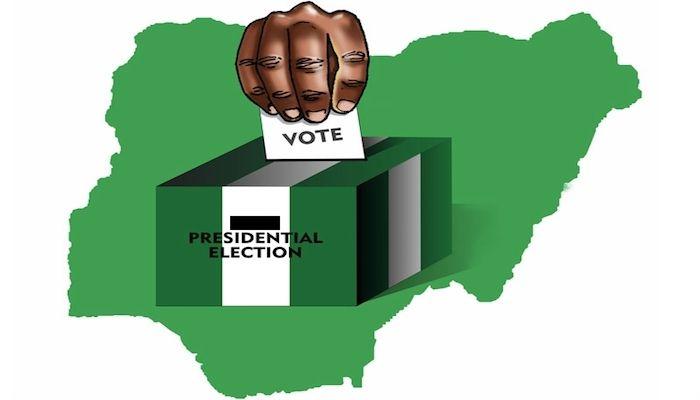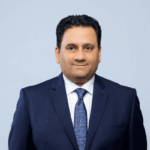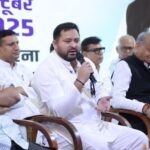…Migrants now foreign investors, Sowore mocks
…Skeptics doubt Nigeria's preparedness for diaspora voting
As Nigeria approaches the 2027 general elections, a familiar debate is re-emerging that questions the exclusion of millions of Nigerians abroad from the country's electoral process.
From New York to London to Toronto, voices are growing louder, demanding that the people who fuel the economy by billions of dollars each year be allowed to help decide the country's leadership.
The billions that keep Nigeria afloat
According to estimates, more than 17 million Nigerians are living outside the country, and many of them play a vital role in maintaining families, supporting communities, and stabilizing the economy at home.
Official data shows diaspora remittances reached $20.93 billion in 2024, more than four times the total value of Nigeria's foreign direct investment (FDI) in the same year. The World Bank reports that Nigeria alone accounted for about 37 percent of total flows to sub-Saharan Africa, cementing its place as one of the largest recipients of remittances on the continent.
These funds are not abstract figures running on digital platforms. They represent school fees paid, hospital bills paid, rent covered and small businesses kept afloat. Yet, despite their economic influence, Nigerians in the diaspora are still spectators in the country's democratic process.
“Today, the money received from citizens abroad is, sometimes, more than the money earned from oil and gas,” Femi Falana (SAN) said in a recent interview.
“So, if they are sending millions of dollars, which is very helpful for improving the economy, they also have the right to demand that they be allowed to participate in the election of the country's leaders.”
Also read: Electoral Act reform: Can beneficiaries of vote fraud bring about positive change?
growing movement abroad
In September, a diverse group of Nigerians, activists, professionals and community leaders gathered in New York for a town hall meeting themed 'Will the Nigerian diaspora be silenced again in 2027?' The message was clear and unified: Nigerians in the diaspora deserve the right to vote.
Speakers at the meeting argued that diaspora participation will not only empower citizens abroad but also strengthen the overall democratic process.
Among the most passionate voices at the event was former presidential candidate and pro-democracy activist Omoyele Sowore, who attended virtually, comparing Nigerians in the diaspora to foreign investors.
“Expats have become almost the only foreign investors you hear about,” Sowore said. “It is Nigerians who now live abroad, in fact they are foreigners who invest in Nigeria. And anybody who brings more than $50 million into the economy should not be asking or begging to vote for them.”
Learning from Africa's neighbors
At the town hall, speakers cited examples from other African countries that have already embraced diaspora voting. Kenya has gradually expanded voting rights to its citizens living abroad. South Africa allows its citizens to vote at embassies and consulates abroad, while Ghana has operated programs that enable its citizens to vote from embassies.
One participant said, “We all care about elections, but most of us can't actually go back home just to vote.” “Ghana, South Africa and others have all found ways to engage their citizens abroad, and we can do the same.”
These examples have become a rallying point for advocates who argue that Nigeria, with its global diaspora presence, has no excuse for lagging behind.
Is Nigeria ready yet?
Despite the growing momentum, critics insist that calls for a migrant vote are premature. He argues that Nigeria's existing electoral system, which is still beset by irregularities, technical glitches and controversies, is inadequate to manage the complexities of the overseas voting structure.
“How can we talk about diaspora voting when we are still struggling to conduct credible elections within Nigeria?” A political analyst asked the question. “We have not yet perfected this process domestically, expanding it abroad could lead to increased chaos.”
Skeptics have also warned that migrant voting could be exploited politically, citing concerns over the transparency of voter registration and results transmission.
“INEC is still struggling to reliably disseminate results across Nigeria's 36 states,” the critic said. “Imagine the challenges of handling votes from London, New York or Johannesburg. Without a solid system, this could lead to more distrust, not more democracy.”
Others raise logistical and constitutional concerns, including how to verify citizenship, prevent double voting and ensure that results are securely transmitted from abroad. For many of these critics, the issue is not whether Nigerians in the diaspora deserve to vote, but whether Nigeria's institutions are prepared to do so.
Also read: Ghost of military era looms over Nigeria, government crushes voices of dissent
Legislative efforts and constitutional obstacles
In 2024, the push for diaspora voting into the National Assembly of Nigeria took a step forward. A bill to amend the 1999 Constitution to allow Nigerians abroad to vote passed second reading in the House of Representatives.
The proposed amendment targets sections 77(2) and 117(2) of the Constitution to include as eligible voters citizens “residing within or outside Nigeria” at the time of voter registration.
After this the bill has been sent to the Constitutional Amendment Committee for further consideration. Still, advocates remain cautious. A similar proposal in the 9th National Assembly failed to gain sufficient traction and was eventually dropped.
Supporters believe that passage of the bill will correct a long-standing democratic imbalance.
One lawyer said, “This is not just about fairness.” “This is about recognizing that citizenship and participation should not end at the airport gate.”
Beyond legislation, many see the lack of a clear policy framework as the main obstacle. Nigerians abroad, many of whom work in systems where efficiency and institutional strength are the norm, have urged their home government to adopt a more pragmatic and innovative approach.
Some suggest phased implementation starting with presidential elections or selected embassies, while others argue that time is running out before 2027.
For Nigeria, the diaspora voting debate has become more than a legal or logical question, it is a test of the country's democratic maturity. Those in favor see it as an overdue reform that will give millions of Nigerians abroad a voice in shaping the future of their homeland. Opponents see it as a well-intentioned idea that risks backfiring if inserted into a ready-made system.
But amid the debate, one truth remains undeniable: the diaspora has become indispensable to the survival of the Nigerian nation. Their remittances help families, sustain businesses and stabilize economies. Whether their voices will finally be heard at the ballot box in 2027 is a question that only time and political will can answer.











